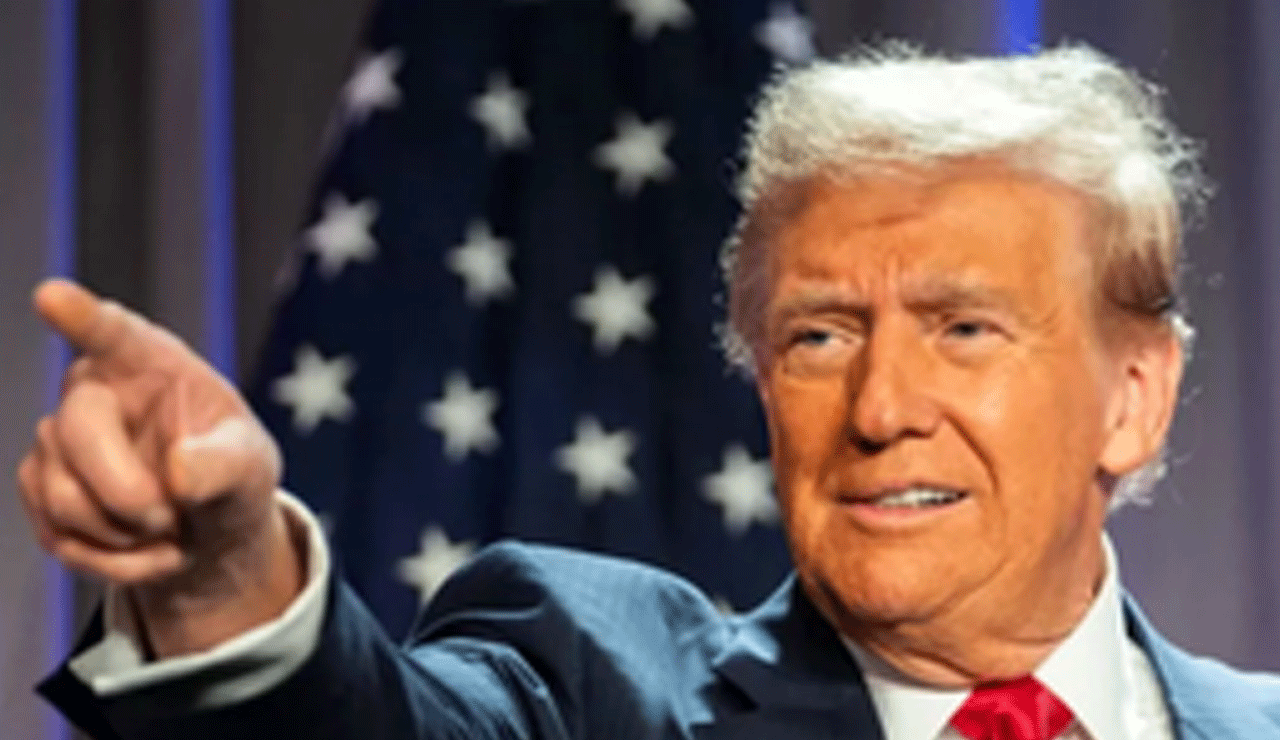Trump Imposes 100% Tariff on Foreign Films, Citing National Security Threat
In a bold move aimed at reviving the American film industry, US President Donald Trump announced a 100% tariff on foreign films, calling it a national security threat.

Washington: In a bold move aimed at reviving the American film industry, US President Donald Trump announced a 100% tariff on foreign films, calling it a national security threat. Trump took to his social media platform, Truth Social, on Monday to share the news, asserting that the declining film production in the United States posed significant risks to the country’s cultural and economic integrity.
Table of Contents
Trump Blames Foreign Incentives for US Film Decline
The President claimed that other countries were offering substantial incentives to lure filmmakers and studios away from Hollywood. “The industry in America is dying a very fast death. Other countries are offering all sorts of movie incentives to draw our filmmakers and studios away from the United States,” Trump posted. He further accused foreign nations of using the movie industry as propaganda, stating, “This is a concerted effort by other nations and, therefore, a national security threat.”
Trump’s statement comes in the wake of a noticeable decline in film production within the US, especially in California, the heart of Hollywood. The President specifically pointed to California Governor Gavin Newsom as being responsible for the downturn, blaming budget cuts and an outflow of film projects to countries offering more attractive tax incentives.
Also Read: IPL 2025: Delhi Capitals Face Must-Win Clash Against Struggling Sunrisers Hyderabad
Aimed at Revitalizing Hollywood
Trump’s decision to impose the tariff aims to bring film production back to the United States, with the goal of ensuring that movies made in America are once again the standard. “We want movies made in America again,” Trump emphasized, adding that foreign films are not only detrimental to the American economy but also represent a form of messaging and propaganda.
In his announcement, the President authorized the Department of Commerce and the United States Trade Representative to begin the process of instituting the 100% tariff on films produced outside the US. The tariff will apply to all foreign-made films entering the country.
Declining Film Production in Hollywood
Reports indicate that the California film industry has seen a significant decline in recent years, partly due to budget cuts and more generous tax incentives in other countries. Additionally, the American film sector has faced a series of setbacks, including Hollywood labor strikes and the impact of the Covid-19 pandemic.
To combat this, Trump had previously appointed film icons Jon Voight, Mel Gibson, and Sylvester Stallone as special ambassadors tasked with revitalizing Hollywood. Their role, according to Trump, is to bring business back to Hollywood and restore the industry to its former glory, which has been significantly weakened in recent years due to foreign competition.
The Bigger Picture: Tariffs and Trade Relations
This new tariff proposal is part of a broader effort by the Trump administration to regulate trade and ensure that American industries are not undermined by foreign competition. By imposing a hefty tariff on foreign films, Trump seeks to curb the economic leakage to other countries and ensure that American creativity and production remain a dominant force in the global film industry.
However, the move is likely to have significant diplomatic and economic consequences, with some critics questioning its impact on international relations, especially in the global film and entertainment industry.
